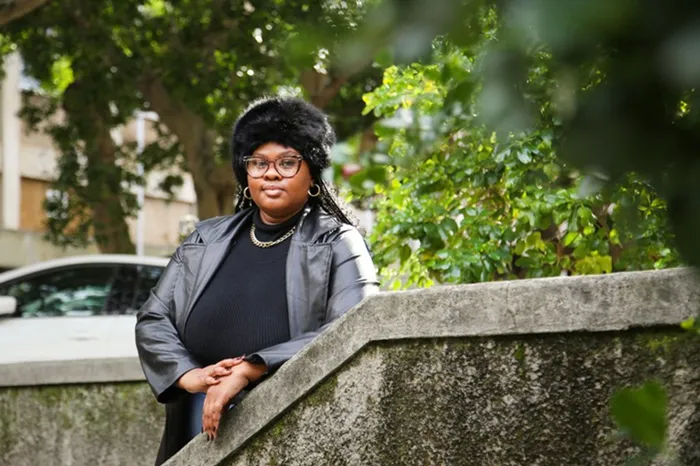UCT study highlights impact of flooding on Khayelitsha women

Palesa Base, a research assistant at UCT’s African Climate and Development Initiative (ACDI). Picture: Supplied
by Niémah Davids
The plight of women in Khayelitsha during floods has been uncovered in a study by Palesa Base, a research assistant at UCT’s African Climate and Development Initiative (ACDI).
The study is part of her Honours research in environmental and geographical science and was made feasible by working together with the Informal Settlement Network and the Community Organisation Resource Centre, two non-profit organisations.
“I’ve sat pensive a few times this week thinking (about) just how much those women who participated in this research study have been affected by this storm.
“We see in the news that Khayelitsha is one of the communities hardest hit by the rain. It always is, which is why I made women there the focal point of this study,” Base said.
Base’s work forms part of a broader and ongoing set of research studies into understanding the impact and effect of climate change, with a particular focus on flooding in Cape Town.
Flooding is widely recognised as a consequence of climate change, and Cape Town has seen a significant increase in the frequency of flood events.
Research shows that those living in informal settlements on the city’s outskirts are often the most impacted.
Base’s research study, titled “Understanding the gendered and intersectional impacts of flooding on women living in the Emsindweni informal settlement”, surveyed 14 women from the community, who openly shared their experiences.
During focus group discussions, Base said participants grouped the impact of flooding into three key categories: economic (the impact on their livelihoods), health (the impact on their health and well-being) and social (the impact on their homes, the way they live and their relationships).
“While flood disasters don’t discriminate based on gender, it’s a fact that disasters like this disproportionately impact women. And different groups of women, who experience varying degrees on vulnerability, experience it differently,” Base said.

She noted that most women living in Emsindweni participate in informal trading and run small businesses from their homes.
When flood occurs, it brings everything to a standstill, leading to a loss of income and increased financial instability.
Without access to personal or business insurance plans or savings accounts, replacing items lost in floods is nearly impossible.
Base added that this exacerbates the financial strain they already face.
Base said women were overextended and exhausted.
“Where we are now, there is a significant gap when it comes to institutional support from local government and other agencies. It’s important that we plug this gap to build strong ties between community organisations and government to improve adaptive capacities and the lives of women.”
Related Topics: